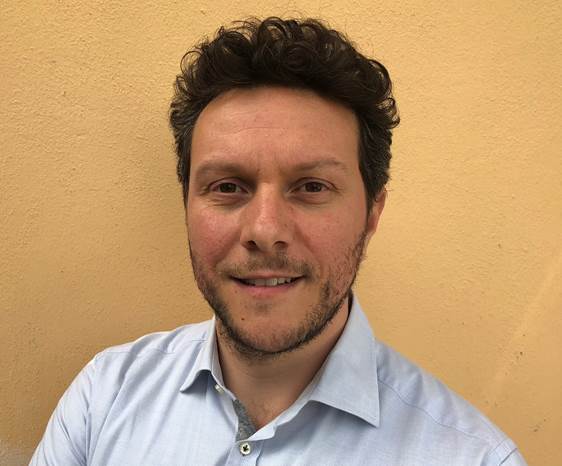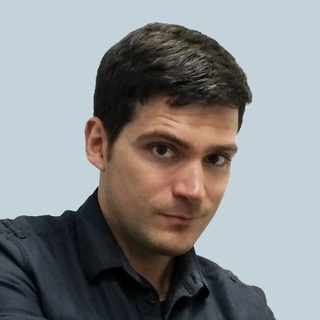We will have the pleasure to have the following invited speakers, who will share their latest findings in their talks with Q&A sessions.

Marcia O’Malley
Rice University (USA)
Marcia O’Malley is the Thomas Michael Panos Family Professor in Mechanical Engineering, Computer Science, Electrical and Computer Engineering, and Bioengineering at Rice University, and she is currently serving as Chair of the Department of Mechanical Engineering. She received her BS in Mechanical Engineering from Purdue University, and her MS and PhD in Mechanical Engineering from Vanderbilt University. Her research is in the areas of haptics and robotic rehabilitation, with a focus on the design and control of wearable robotic devices for training and rehabilitation. At Rice, she has been recognized with Rice’s Presidential Award for Mentoring, the Graduate Student Association Faculty Teaching and Mentoring Award, and the Rice University Faculty Award for Excellence in Research, Teaching, and Service. O’Malley was a recipient of both the ONR Young Investigator award and the NSF CAREER Award. Her research has been recognized with Best Paper Awards in the IEEE Transactions on Haptics and the IEEE/ASME Transactions on Mechatronics. She is a Fellow of the American Society of Mechanical Engineers, the Institute of Electrical and Electronics Engineers, and the American Institute for Medical and Biological Engineering.

Sabine Thuerauf
University of Erlangen-Nuremberg (DE)
Dr. Sabine Thuerauf studied computer science at TU Munich from 2009-2014. Afterwards, she started her PhD with a joint project of the research institute fortiss, Siemens Healthcare, Clinic rechts der Isar and TU Munich about the spatial calibration of robotic C-arm systems. During her PhD she was a visiting scholar at the CAMP lab at Johns Hopkins University. She received her PhD in 2018 and spent a couple of years in industry and parental leave until she started her PostDoc in 2022 at Assitive Intelligent Robotics Lab at FAU Erlangen-Nurmeberg. Her research focuses on intuitive robot control, haptic feedback and tele-impedance.

John Chiodini
Delsys Incorporated (USA)
John Chiodini is a Senior Research Scientist at Delsys Inc., where he has worked since 2013. His research specializes in applying bio-signal processing and machine learning techniques to the areas of human performance and movement. At Delsys, John leads a portfolio of research projects ranging from neural interface development and human bio-marker detection to augmentative and alternative communication processing. His research interests include prosthetic control, multi-modal signal processing, and self-supervised learning.
Mr. Chiodini received his B.S in Computer Engineering from Boston University, Boston, MA in 2013; and his M.S in Robotics Engineering from Worcester Polytechnic Institute, Worcester, MA in 2019.

Lorenzo Masia
Heidelberg University (DE)
Lorenzo Masia began his career in mechanical engineering with a degree from Sapienza University of Rome in 2003, followed by a PhD from the University of Padua in 2007. His initial steps into robotics was marked by two-year as researcher at MIT’s Newman Lab for Biomechanics and Human Rehabilitation, spanning from January 2005 to December 2006.
He took on the role of Team Leader at the Italian Institute of Technology, specifically in the Robotics Brain and Cognitive Sciences Department. By 2013, Masia he was an Assistant Professor at Nanyang Technological University’s School of Mechanical & Aerospace Engineering, where he remained until 2018 and later progressed at the University of Twente, where he held the position of Associate Professor in Biodesign.
Since April 2019, Professor Masia has been at Heidelberg University in Germany, serving as a Full Professor in Biorobotics & Medical Technology. Here, he leads the ARIES Lab, focusing on Assistive Robotics and Interactive ExoSuits at the Institute of Computer Engineering (ZITI).
Professor Masia’s work has garnered international acclaim, evidenced by multiple awards at leading conferences in Biorobotics and Robotic Rehabilitation, including two IEEE Best Paper Awards and three IEEE Best Student Paper Awards, among others.
In addition to his research and teaching, Professor Masia holds significant editorial roles with several prestigious journals, IEEE RAL, IEEE TNSRE, JNER and Wearable Technologies. He has also played key roles in organizing major conferences in the field, and he will be the General Chair for IEEE BIOROB 2024 (1-4 September 2024).

Alessandro del Vecchio
University of Erlangen-Nurnberg (DE)
Alessandro Del Vecchio received bachelor and masters in Biomechanics, PhD with summa cum laude in the neural control of movement, and a post-doc on the analysis of motor neuron behaviour for various translational activities. He is an expert in the analysis and interpretation of the EMG signals with a particular interest in the neural control of movement at the motor unit level. He is also interested in real-time control algorithm to decode movement intent in patients with paralysis. He holds the Chair of Neuromuscular Physiology and Neural interfacing at Friedrich-Alexander University (FAU) of Erlangen-Nurnberg.

Gionata Salvietti
University of Siena (IT)
Gionata Salvietti received the master’s degree in computer engineering and the Ph.D. degree in information engineering from the University of Siena, Siena, Italy, in 2009 and 2012, respectively.
In 2012, he was a Visiting Researcher with the DLR Institute of Robotics and Mechatronics, Weblling, Germany, and with the University of Hamburg, Hamburg, Germany, in 2008. From 2012 to 2015, he was a Postdoctoral Researcher with the Italian Institute of Technology, Genoa, Italy. From 2020 to 2023, he was the PI for the University of Siena unit in the EU ERASMUS+ project “AUGMENTEDWEAREDU.” Since 2023, he is the PI for the PRIN project “ARTIS” financed by the Italian Ministry of Research and of the EU Erasmus+ project “ImmersiveSurgicalEdu”. He is currently an Associate Professor of industrial robotics and control with the Department of Information Engineering and Mathematics, University of Siena, and an Affiliated Researcher with the Italian Institute of Technology. His research interests include collaborative robotics, assistive devices, and haptics.
Dr. Salvietti is an Associate Editor for IEEE TRANSACTIONS ON ROBOTICS since 2022, IEEE TRANSACTIONS ON HAPTICS, and IEEE Robotics and Automation Letters since 2020.

Minas Liarokapis
University of Auckland (NZ)
Prof. Minas Liarokapis is an Associate Professor in the Department of Mechanical and Mechatronics Engineering at the University of Auckland, Director of the New Dexterity group (www.newdexterity.org), Chair of New Zealand Robotics, Automation, and Sensing (www.nzras.org.nz), and CTO of Acumino (www.acumino.ai). Previously, he was a Lecturer / Senior Lecturer / Senior Lecturer – Above the Bar in the same Department and a Postdoctoral Associate in the GRAB Lab at Yale University.
Minas is interested in equipping robots with dexterous manipulation capabilities and enabling humans to regain their lost dexterity or augment their performance, modelling, designing, and controlling new robotics and bionics hardware.
He is the founder of the Open Bionics (www.openbionics.org) initiative and a co-founder of Open Robot Hardware (www.openrobothardware.org) and Hand Corpus (www.handcorpus.org).
His research has received multiple prestigious awards in international conferences and industry oriented competitions, >90% of the R&D funding that he has attracted comes from industry collaborations, and he has successfully industrialized and commercialized outcomes of his research.

Gordon Cheng
Technical University of Munich (DE)
Prof. Gordon Cheng has made pioneering contributions in Humanoid Robotics, Neuroengineering, and Artificial Intelligence for over 20 years. Since 2010, he has been the Chair Professor of Cognitive Systems, and the Director of the Institute for Cognitive Systems at the Technical University of Munich, Germany.
Prof. Cheng is the Program Director of the Elite Master of Science in Neuroengineering of the Elite Network of Bavaria, a highly selective and unique study program in Germany. He is also the coordinator of the Center of Competence Neuro-Engineering.
Prof. Cheng holds approximately 20 patents and co-authored over 450 technical publications.
In recognition of his high achievements, Prof. Cheng was named IEEE Fellow in 2017 for his “contributions in humanoid robotic systems and neurorobotics.”
Prof. Cheng is the recipient of the European Research Council Advanced Grant to pursue his work on “Soft-exoskeleton suit To Restore Autonomous Locomotion.”
